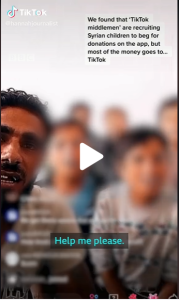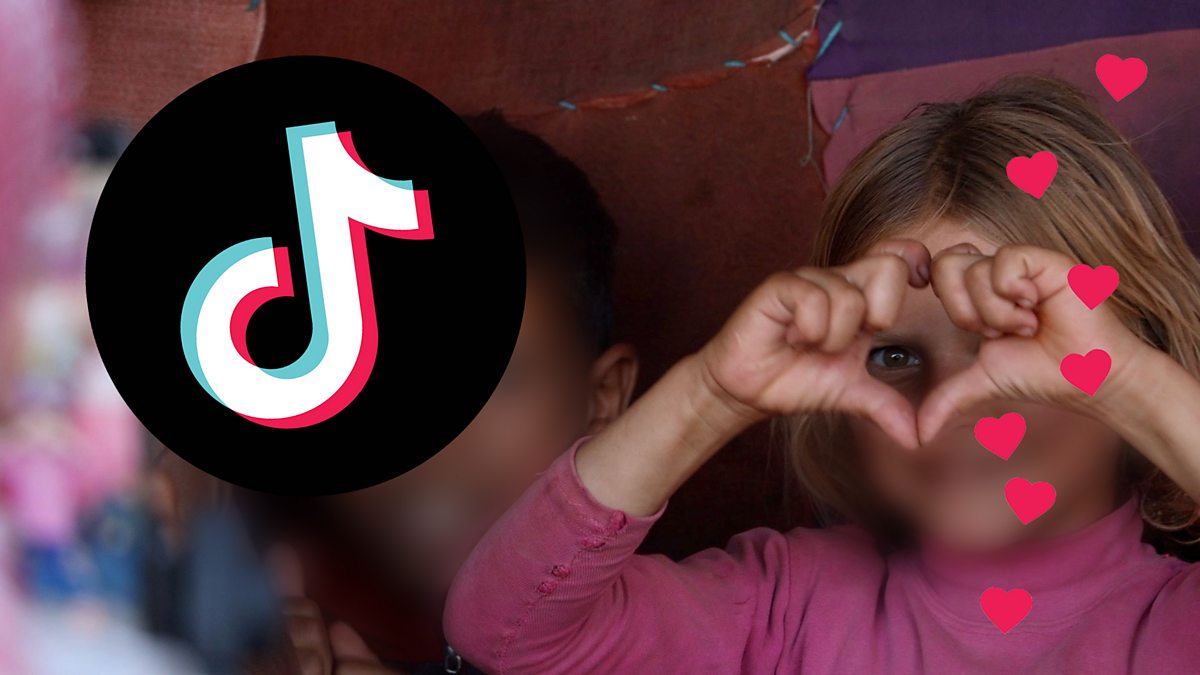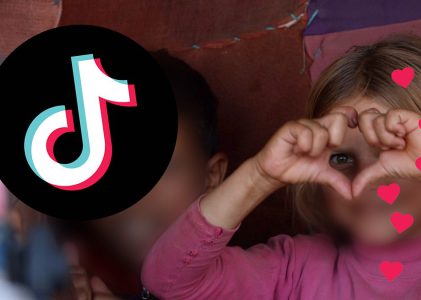Dear readers,
it seems like the bad news never stop coming. First, we read them in the newspapers, then on the radio and television, on our computer screens, and in recent years on the display of tiny devices that were promised to bring us so much joy and which should bring us closer together.
While, undoubtedly so, social media has allowed us to “see” things/situations/circumstances that we in our natural habitat could not have imagined otherwise, it has also been shedding light on uncomfortable situations. And I, as a relatively frequent social media user (passive consumption rather than active posting), feel like something isn’t quite right. What previously was a “shed a light” moment has now turned into what I could not in any other words describe, but as exploitation.
When looking at the following image, what do you see?

This is a family in Syria who – through livestreaming – begs for donations from global TikTok users. Odd, right? What previously would have been the work of humanitarian organisations who use social media to raise awareness and ask for donations is now being circumvented by individual families who put themselves and their children in front of a camera for hours on end to ask for donations themselves, in the hope of every cent being donated will reach them directly.
The goal? To escape poverty and live a life of financial safety, which is crucial to ensuring a family’s psychological safety net.
Why TikTok?
TikTok as a social media platform is easily accessible and free of charge.
Forbes called out TikTok for having a “sinister purpose beneath its fun exterior” and referred to it as “a time bomb in the making”.
According to a recent BBC report, displaced Syrian families including children spend 2-3 hours daily begging for money while live streaming on TikTok.
It is hard to imagine, but how does the gift-giving work exactly? According to the BBC and Technologistan who spoke to a family man who assists in his wife and children begging for money on the social media platform, it’s all about the value of the virtual gifts the family receives.
These virtual gifts range from digital roses (a few cents in value) up to virtual lions. These have been created to reward content makers. The family man said that “If we get a lion as a gift, it’s worth $500. By the time it reaches the money exchange in Al-Dana, it’s only $155.” Al-Dana is a Syrian town 38 kilometres west of Aleppo.
His account of the story means that not all the money meant for the content creators actually reach the content creators. The BBC went ahead and tested the gifting scheme.
An October 2022 report by Business Insider stated that “to test TikTok’s gifting system, the BBC asked one of its journalists to broadcast live from his Syrian-based TikTok account. The BBC donated $106 to the journalist’s account via TikTok’s live-gifting system. The journalist received $33.03, per the report.”
PetaPixel states that “the bulk of donations was pocketed by TikTok and various middlemen that have made a business from these livestreams.”
The following clip I found incredibly hard to watch, so be advised when you do:

Thank you very much for reading to the end and I look forward to lively discussions directly on the post’s “Comments” section as well as on Facebook and Twitter. Should or could exploitation be “fun” to watch, which would inexplicably turn a video of families begging for money into the theatre genre of a farce, or should these types of videos be banned? And what is something you feel was missing in the analysis? I’m eager to know and to broaden my horizons. Thank you in advance for the engagement!
“Read” you next time!

